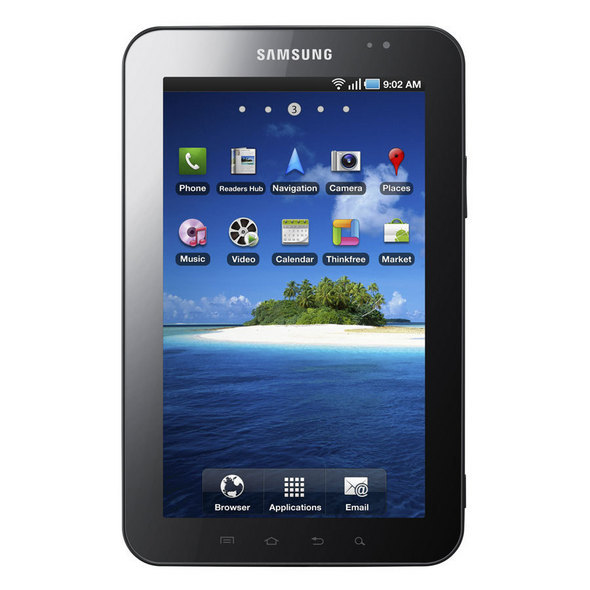
Verizon Wireless and Samsung announced today that Samsung’s Galaxy Tab will be available starting Nov. 11. Verizon will be offering the tablet computer for $599.99 with a $20 monthly plan that includes 1GB data with no contact commitment. The Tab will come with both Wi-Fi and 3G capabilities. Verizon has not yet mentioned if additional data plans will be offered, as are now planned for the iPad.
The device will be Samsung’s first venture into the tablet-computing market, and will become the second such device to be sold through Verizon following the iPad, which is expected to land in Verizon stores later this month. The Galaxy Tab will run on Google’s Android 2.2 operating system and is promising “full support for Adobe Flash 10.1 for video and mobile gaming.” The Tab has a 7-inch touch screen display and 1GHz Cortex A8 processor. Two cameras are also included allowing for video chat service and photography. The Verizon-sold tab will include mobile applications such as Kindle for Android, V Cast Music, and VZ Navigator.
The announcement comes on the heels of the news of Verizon’s plans to begin carrying Apple’s iPad. Comparisons between the two tablets are inevitable. Steve Jobs, speaking on Apple’s earnings call this week, took time off from taking shots at smartphone competitors to suggest that tablets using 7-inch screens are inadequately sized and that Google’s Android 2.2 may not be a viable operating system for tablets.
The Galaxy Tab, as it is planned for Verizon, does have the clear advantage of having built-in support for a 3G connection. Those that choose the iPad will have to use Verizon’s external MiFi device when connecting to 3G.
The Galaxy Tab is expected to eventually be also sold by AT&T, Sprint Nextel, and T-Mobile.


